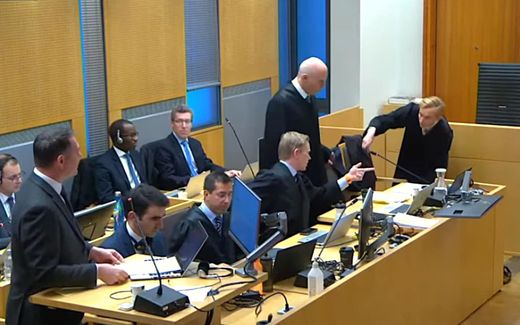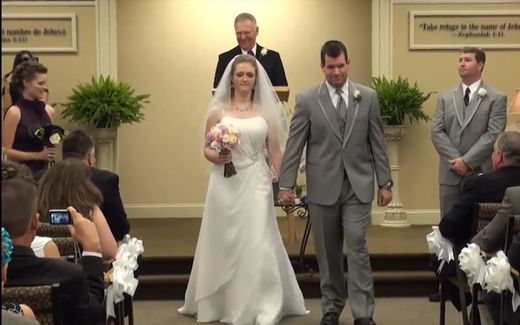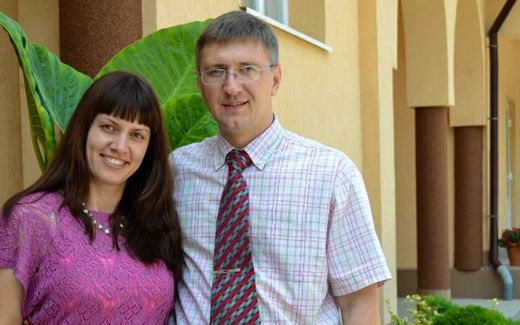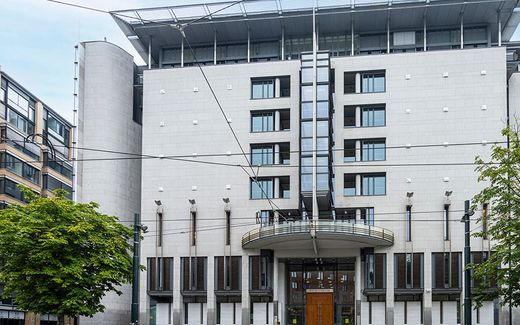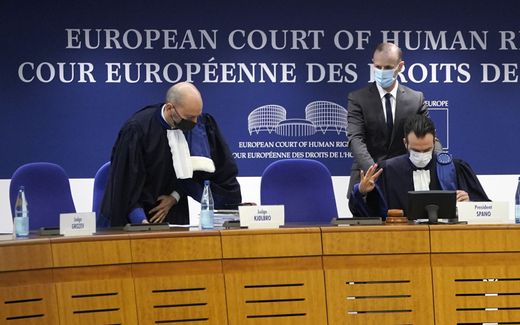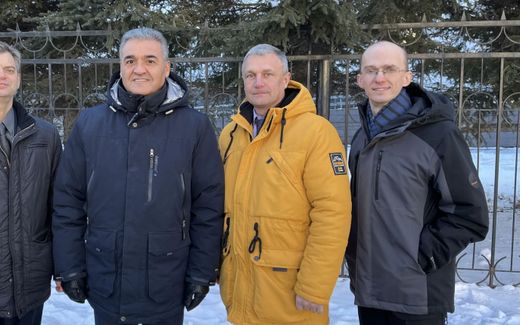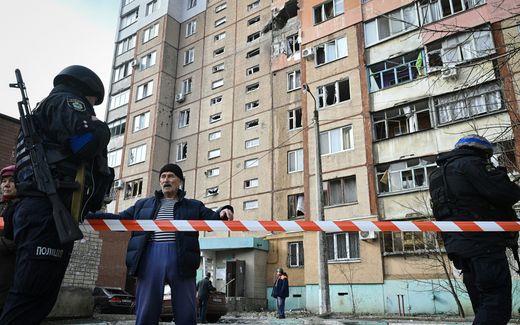Jehovah’s Witnesses ease shunning rules after blow in Oslo court
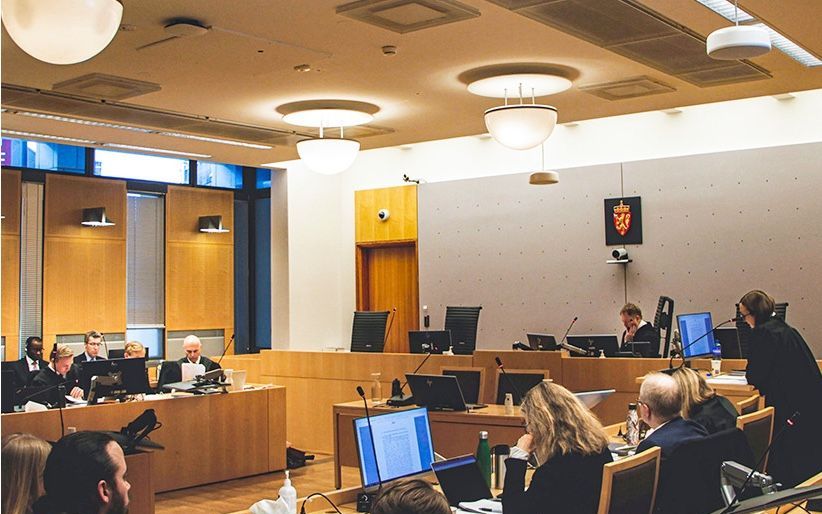
Court session in January. Photo JW.org
Northern Europe
Jehovah’s Witnesses worldwide have eased the discipline for youth members after “serious wrongdoing”. The new guideline came within two weeks after the decision of the Oslo District Court in Norway to strip the Jehovahs of their official status as a registered faith community.
Receive CNE's weekly newsletter? Feel free to sign up here.
The faith community seems to be trying to get a better position in the appeal case in Norway. The community came under attack for its rigid rules regarding discipline to “baptised minors”.
Among Jehovah’s Witnesses, it is usual that children choose for baptism between 12 and 16 years. Religiously, they are seen as responsible members than, who can be disciplined. There have been cases of “disfellowship” after “serious wrongdoing”, resulting in “shunning”, isolation and contact bans. For individuals and families, this can be rigid and feel like psychological violence.
For the Norwegian state, this practice is controversial because those “baptised minors” are legally still kids. The state feels responsible for protecting the minors. After complaints of psychological violence, the authorities decided in 2021 to rip the Jehovah’s Witnesses in Norway from the legal status, which they had since 1985. According to experts, this is the first time a faith community lost its legal position in Norway.
This registration in Norway gives access to huge amounts of state subsidies. The monetary support is about NOK 16 million (1.3 million euros) every year. Over three years, together with interest, the JW demanded NOK 50 million (4.3 million euros).
With the de-registration, the Jehovah’s Witnesses also lost the right to perform civil marriages. Traditionally, marriages were performed by the Lutheran state church. Nowadays, all recognised faith communities (including the Humanist Society) can perform civil marriage.
The JW community in Norway –which consists of 12,000 members in 700 local congregations– went to court about the decision. The public sessions in court took two weeks in January.

Dozens of people involved came to testify how significant the damage of exclusion had been for them. Others came to tell of the fear of being excluded from the community in which they had lived and, therefore, remained within the community anyway. Some people told of years of pressure that led to lifelong emotional impact.
The conclusion was clear: disfellowship and shunning exist. However, legally, the central question was whether this is part of the community’s freedom of belief or whether it restricts the freedom of those (minors) involved. And could it be a ground for de-registration? This is a new field since this is the first group that has been ripped off registration.
On March 4th, the judges confirmed the state’s position. On March 28th, the Jehovah’s announced the appeal.
“Simple greeting”
Before the appeal was made known, another announcement came from JW: “Adjustments to handling serious wrongdoing in the congregation”.
The new rules published in a video mid-March include a softening of the contact ban. Members may use their “Bible-trained conscience” to decide on a “simple greeting” to a person removed from the congregation. It is no longer expected “to ignore him completely”.
According to a confidential document that leaked to the critical platform Jehovahs-Witness.com, the discipline of baptised minors has been liberalised even further. From now on, only two elders meet with the person and his parents or guardians. Before, this was a committee. The elders “will exercise patience as they work with the parents to understand the minor’s attitude”. After this, they cooperate with the parents “to assist their child”.
Before, there was just one meeting, after which the committee decided within two hours whether to take steps to “disfellowship” or not.
Haste
The new measures have been introduced with unusual haste. Usually, there is more time and rest in the procedure. That is remarkable because the organisation defended the then-current practice of disfellowship as Biblical last December. A German lawyer who himself is part of the Jehovah’s Witnesses thinks it difficult not to see the connection with the Oslo court decision.

The Jehovah’s Witnesses claim to have been active in Norway since the 1890s. In the early 1980s, they applied for registration. In those days, this was controversial within the community, since by doing that the Jehovahs would accept to be placed on the same level with other churches. However, the advantage was clear: the group would receive the same money as the state church and other groups.
Also, the Jehovah’s Witnesses have an official registration in other countries, like Germany and Italy. However, the conditions and profits differ from country to country.
Disinformation
In Norway, the court case has been characterised as the most important judicial procedure about religious freedom in decades. Spokesman Jørgen Pederson of the Jehovah’s Witnesses does not speak to the press but distributes a written statement after the decision. The decision by the judges about the “State’s offensive allegation” is “deeply disappointing”, Pederson writes. The state could “not provide a single verified example of a victimised child”. For him, this judgement confirms that Jehovah’s Witnesses are “often victims of disinformation”.
The case will continue in the appeal stages. Experts find it likely that the case might end in Strasbourg at the European Court of Human Rights (ECtHR).
Reactions to the court’s decision were of two types. First, some welcomed the verdict. Freedom of religion can never be absolute, and the state must curtail long-term wrongdoings. They were not impressed by Pederson’s comment that there was “no single verified example” of abuse.
Several academics stated that the freedom of religion is not at stake here since the Witnesses can still hold fast to their interpretation of the Scriptures and teach this in their gatherings. The scope of disciplinary action is limited, but that is because the rights of others are at stake.
A second group of reactions is much more critical. They do not defend the practice of shunning but still think that this should be protected legally. The Baptist Standard, for instance, guessed that Norway might lose its reputation for human rights because of this intervention in the religious liberty.
Also, Willy Fautré, director of the Brussels-based organisation Human Rights Without Frontiers, is concerned. “We see that there are more and more attempts in Europe by state institutions to interfere and intrude into the teachings and practices of religious groups, which is forbidden by the European Convention.”
The editor of the Christian daily Dagen, Vebjørn Selbekk, wrote in January that this case does intervene in the free interpretation of Scripture, since the understanding of discipline is a theological issue.
He finds it cowardly to take on the Witnesses now. They have no friends or allies in the Norwegian society. And since they are not voting, there is no political risk in doing this either. “But precisely in such cases, when the great majority applauds and rejoices that a religious community loses its rights, there is a special reason to be vigilant”, Selbekk wrote. “That’s how they do it in countries we don’t usually like to be compared to.”
Female priests

The professor in the Study of Religion at the University of Oslo, Dr. Dag Øistein Endsjø, is critical too, he says in an interview with CNE.news. “The state must guarantee equality. Suppose the state recognises one community and not the other. In that case, there is differential treatment that must be justified. This goes about tax money as well. As far as I can see, the state has not proven that such unequal treatment is justified, and thus, this may be a case of discrimination in relation to religious freedom.”
For Endsjø, it is “hard to deduce from the material” that the religious groups violate the rights of children. “If, however, this really was proven, the state would, according to its duty to always protect the best interest of the child, have to do much more to stop this practice than just withdrawing the registration and letting the rest go.”
According to Endsjø, one must always have the human rights protection of the autonomy of the faith community in mind. General rules on various forms of equality do, for instance, not apply within the theological dealings of a church. “The state does not have the right to enforce its own vision upon a religious group. If that was the case, the Norwegian state could even have made the Roman Catholics accept female priests.”
Related Articles


